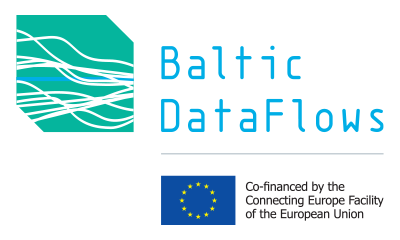The Baltic Data Flows project, led by HELCOM and co-financed by the Connecting Europe Facility of the European Union, seeks to enhance the sharing and harmonisation of data on the marine environment originating from existing sea monitoring programmes, and to move towards service-based data sharing.
In particular, open datasets on the Baltic Sea marine environment will be made available by HELCOM to a wider community such as researchers, NGOs, the private sector and the European open data ecosystem, for all to benefit from harmonised environmental data.
The project runs from October 2020 to October 2023.
More specifically, Baltic Data Flows will:
- Increase capacity for national competent authorities for harmonising and sharing collected environmental monitoring data on the Baltic Sea by supporting development of database platforms;
- Further develop and implement a system for harvesting environmental datasets from national sources to regionally harmonised datasets by extending the piloted harvested system developed between the project partners ICES and SMHI;
- Provide support to regional harmonisation and create data products supporting environmental assessments by further defining the data needs and existing reporting formats;
- Make harmonised datasets accessible and discoverable in the European Data Portal (EDP) by using DCAT-AP compliant metadata catalogues.
- Baltic Data Flows will improve the capacity building of the national environmental data hosting organisations and providers of the consortium, in terms of quality control and solutions to make harmonised environmental data available. Members of the consortium will build and enhance their ICT infrastructure to support better the data sharing process. In doing so, the FAIR principles will be followed (data should be Findable, Accessible, Interoperable and Reusable).
Data harvesting systems based on Application Programming Interfaces (APIs) will be developed with the aim to automatically integrate national datasets into a combined and harmonised regional dataset. As a result of the project, harmonised and quality assured pan-Baltic monitoring data that is usable for research purposes, environmental assessments, sustainable maritime spatial planning and blue growth will be made accessible.
Furthermore, Baltic Data Flows will provide tools for creating and disseminating more general data products suitable for communicating status of marine environment to the general public and decision-makers.
